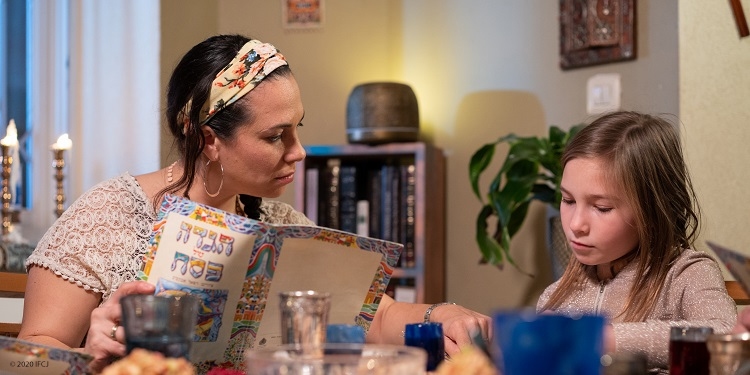The Value of Asking Questions
Yael Eckstein | March 29, 2021

And when your children ask you, “What does this ceremony mean to you?” then tell them, ‘It is the Passover sacrifice to the LORD, who passed over the houses of the Israelites in Egypt and spared our homes when he struck down the Egyptians.’” — Exodus 12:26-27
This week, my family and I join Jews around the world in celebrating the most important event in Jewish history — the Exodus and redemption of the children of Israel from bondage in Egypt. These devotions based on my book, Generations to Generations: Passing on the Legacy of Faith to Our Children, were prepared for you in advance to help you discover the many lessons in faith Passover has for you.
One of my earliest memories is of my father eating an entire tablespoon of traditional bitter herbs on Passover. The horseradish was so bitter that his eyes filled with tears, and it looked as though he was weeping at our holiday meal.
I asked my father why he was crying, and he responded, “So that you would ask!” One of my older sisters then explained that the purpose of eating bitter herbs was to remind us of the bitter enslavement of the Israelites and the tears that they shed. From my father’s perspective, he was just as proud of me for asking the question as he was with my sister for knowing the answer, and I got the invaluable sense that asking questions is a good thing.
The Value of Asking Questions
Judaism values asking questions because it is through asking that we learn and grow. Our tradition teaches, “A person who is shy cannot learn,” meaning a person who doesn’t ask questions will miss countless learning opportunities. This is why on Passover we encourage our children to ask questions. If we want them to learn about their faith, we must instill the value of asking questions about their faith on that night and for years to come.
As parents, we are all familiar with the stage that most children go through when all they ask is “why?” Why does the grass grow? Why do we have to brush our teeth? Why do we have to go to bed at 8 p.m.? It’s a seemingly endless stream of “whys,” from the time they get up to the time they go to sleep. Too often, we are in a rush or have had enough of answering questions for the day, and it’s tempting to become irritated and shout back, “because that’s just the way it is!”
Yet, every Passover, I am reminded to treat these questions as holy. These seemingly inconsequential questions have a value beyond what I understand. Each time a child asks a question, it is an opportunity for us to encourage asking questions in the future, and consequently, to inspire a lifetime of learning.
